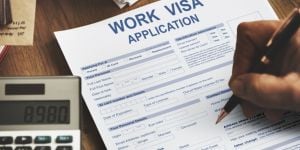Extraordinary Naturalization (15 yrs)
Subscribe to the topic
Post new topic
Hello Everyone,
Does anyone have details not mentioned on the Federal Police's website about when the clock starts to tick for the 15 years to become naturalized in Brasil for the extraordinary category?
Does it (a)
start from the time someone enters Brasil or
(b) from the time they put your name in the paper that you became a resident / date on your very first residency card,
for the 15 years to start?
I know probably nobody here has applied for naturalization using the 15 year plan, but thought it might be worth asking here just in case someone may know.
Thanks for your comments in advance.
Hope you all are well!
I'd say it starts from day one of your PR validity.......prior to that you were probably a tourist without formal status.
I have a VIPER and the only date that matters in my limited government interactions has been the date of issuance IMHO.
@Gasparzinho 777 --- thanks. This is also what I was thinking, and it makes sense, but, since I did not see any details on the Fed website I thought I should ask here....
10/02/23 Does anyone have details not mentioned on the Federal Police's website about when the clock starts to tick for the 15 years to become naturalized in Brasil for the extraordinary category?
Does it (a)
start from the time someone enters Brasil or
(b) from the time they put your name in the paper that you became a resident / date on your very first residency card,
for the 15 years to start?
I know probably nobody here has applied for naturalization using the 15 year plan, but thought it might be worth asking here just in case someone may know.
Thanks for your comments in advance.
Hope you all are well!
-@ExpatUSATravels
It appears to start at the issue date of the applicant's CRNM:
https://www.gov.br/mj/pt-br/assuntos/se … residencia
Besides the usual criminal background checks, the applicant must provide a document proving residence in each of the 15 years -- acceptable documents are listed in the reference above -- so it's good to start keeping records early.
Absence from Brazil for over 90 days in any year may break continuity, so if that situation exists, obtaining legal advice would be a good idea.
@ExpatUSATravels...Here is what PF has to say for 15 years/extraordinary naturalization time counting:
To prove that the immigrant has been permanently established in Brazil for more than fifteen uninterrupted years, the period between the date on which he began to reside for an indefinite period in the country and the date of submission of the naturalization application will be considered.
The main document that certifies residence for an indefinite period in the national territory is the registration carried out with the Federal Police and the National Migration Registration Card or CRNM, even if expired.
I hope it clarify your doubt.
@abthree
Thanks for the link I will have to read through that page.
Where did you find about 90 days out of Brasil "possibly" breaking continuity?
I am interested in any specifics as you mentioned about being out of the country.
However it am guessing that since they allow 2 years out of the country without losing residency,
that they also may consider that for people that go on long vacations more than 90 days...
If you run into any links from any of the official Brasil sites that give more details/rules about this subject of Extraordinary Naturalization it would be a great help. I usually like to read the fine print, as that is where the exact rules are.
And as I mentioned already a bit, that it only makes sense that if you did not do anything to break continually maintaining a permanent residence in Brasil then it would seem fair that they count only the time against you (in which you left for a long enough stretch) which resulted in losing your residency. Otherwise 90 days to me seems like an extremely short and ridiculous time frame. I am more curious now that you mentioned the possibility of 90 days causing a 15 year reset to start from zero again.
For naturalization purposes, the assessment of the time of absence from the nation is governed by the following proportionality: a maximum of 3 (three) months in a year, including all periods of periodic travel.
Therefore, when calculating due dates, the same proportionality must be used.
10/02/21 @ExpatUSATravels. The guideline followed by the PF for Ordinary Naturalization in evaluating "sporadic absences" appears here:
https://www.gov.br/mj/pt-br/assuntos/se … leira/view
Extraordinary Naturalization really is ... extraordinary. I would doubt that any PF agents outside the city of São Paulo, and even many of the ones there, have ever seen a case. So their tendency will be to fall back on the guidelines they know.
On whether 90 days is "extremely short" for someone who really plans to make Brazil his/her home, I have no response. As to its being "ridiculous", though, all I can say is "their country, their rules". Remember, unlike the United States, Brazil puts ZERO pressure on a resident foreigner to naturalize, ever. Under the circumstances, "take it or leave it" isn't really unreasonable.
Besides, a candidate can always shorten the period to 1-4 years and reduce the documentation requirement as well at any time by satisfying the language requirement.
Absence from Brazil for over 90 days in any year may break continuity, so if that situation exists, obtaining legal advice would be a good idea. -@abthree
That's not true. I am out of Brazil for more than 90 days almost every year (usually 100-120) and have been for 20 consecutive years. I confirmed with the PF before submitting my application for extraordinary citizenship that this would have no impact, and my request has been approved at the first two stages (electronic application and subsequent visit to a PF office), without one word about absences. You are allowed to travel, and unlike ordinary citizenship applications there are no guidelines or regulations pertaining to absences of those who apply for extraordinary citizenship after living here for 15 years (except, presumably, the loss of permanência in the case of a two-year+ absence).
10/02/23 Absence from Brazil for over 90 days in any year may break continuity, so if that situation exists, obtaining legal advice would be a good idea. -@abthree
That's not true. I am out of Brazil for more than 90 days almost every year (usually 100-120) and have been for 20 consecutive years. I confirmed with the PF before submitting my application for extraordinary citizenship that this would have no impact, and my request has been approved at the first two stages (electronic application and subsequent visit to a PF office), without one word about absences. You are allowed to travel.
-@jonesio
You've been lucky so far. I hope that you continue to be.
You've been lucky so far. I hope that you continue to be.
-@abthree
Nothing to do with luck. There are no rules, regulations, laws or guidelines that say anything about 90-day absences hindering those applying for extraordinary citizenship.
@jonesio
This is good news. Not only did I find someone in this group, that has experience with this extraordinary application,
it appears that you are well into the process with good results so far it appears. How much longer until you complete the
entire process? I'm very curious. And yes, I would tend to think that unless you lose your perm residency status (which is something that I can see being very valuable to never give up) then there should be no real issues. This is very good news.
How many months did it take you to get to through the second step? And what is their estimate of time to complete the whole process?
@jonesio
This is great. I know that certain countries' only requirement is that you hold a residency for example for usually about 10 to 15 years, without losing it, and they seem very flexible with no other big rules. This should be the way the world works. If you put in that amount of time then why you shouldn't have the benefits of naturalization. It is not easy for some to pick up and get saturated into a different culture, so for those with at least a decade of time invested, why should anyone really care, if you visit another country for a whole 6-8 months (for example a very sick family member), or to go on a world site-seeing tour for 6 months or more, as long as you come back from time to time. However, I should say that I feel that if a country wanted to impose a ratio of time spent in the country then it should be a 55% or more ratio in the country (total time). Example: if a country wanted to allow naturalization after 10 years then that would come out to you needing to have 5.5 years accumulated in a 10 year period inside that country. This way they see that you are investing more of your time inside the country than outside. Just my opinion. And yes, their country / their rules, I agree.
The extraordinary application is exceptionally direct and quick. The father of one my friend did this online last year. No Portuguese test and just essential documents were asked and his process was approved inside two months.
His son was asked to bring the copies of criminal background certificate (Estaduais) downloaded from next door citizen service desk and they were asked to go home and wait for the approval. SUPER EASY......!
@ExpatUSATravels The extraordinary citizenship process is reasonably straightforward, although time consuming. As already noted by someone else, no knowledge or language test is required, unlike other routes to citizenship. The initial application is now done online, where you must provide information and upload PDF files of all the required documents. You start here: https://www.gov.br/mj/pt-br/assuntos/se … ralizar-se You need to have or develop basic PDF skills because you must combine documents--for example, your proof of residency for 15 years (utility bills etc.) must be in one PDF. It also helps to have a scanner because you'll have to do things such as scan all the pages of your current foreign passport into one PDF, etc. The good news is that once you start the online process you have 20 days to complete the application, so you can stop and start again, add documents as you go along, or make changes, before hitting the submit button sometime in those 20 days. In my case, the initial review was completed about a week after my online application was submitted, with the request that I visit the PF to show originals of some of the documents. After that visit the material went to the ministry of justice, for the final review. This is supposed to be completed within six months (according to the Brazilian constitution and citizenship regulations), although I know people who have waited as long as 18 months or as little as two months. I am at about the two-month mark, and no word yet on finalization of the application. I am in no hurry
A word of warning. If your home country is not a member of the Hague Apostille Convention some of your documents will have to be legalized by the Brazilian consulate or embassy in your country. Some documents will also have to be obtained in, or through, your current country of citizenship. I am Canadian, so I had to obtain an RCMP (federal police) certificate indicating I have no criminal record in Canada, send it to the Brazilian consulate for a stamp, then have it translated in Brasil (Juramentada) by a certified translator (easy, not overly costly and quick these days through online translation services). Canada does not become a member of the Hague Apostille Convention until January 2024. You will also need antecedentes criminais from Brasil, but these can be obtained online in a few minutes.
If you nose around the site I mentioned above, you see what documents are required and how to start the online application process. You may know all of this already, but I have included it in case you haven't yet got this far. I hope this helps.
@jonesio
Wow, thanks for all that info!
Too bad Canada is not on this list, would have saved you a lot of time.
So as far as bills to prove residence, did they ask for each month of electric bills for example?
That would be 12 bills per year x15 years?
And what happens if I do not get bills in my name?
We have lived in various places and but "most of the time" just live with relatives etc... and do not get any bills in our name.
That would be the hardest to prove I guess.
Wouldn't exit and entry stamps into a passport provide enough proof that one was in Brasil?
Unless of course they only want people that do not drain society by living on the street or a house boat (that does not get an electric bill) lol.
Thanks again for this info.
I just remembered that my spouse has a little house that we only lived in for about 1 year (but the water bill for example has been in the family name I believe for the whole time. I will have to check on this).
On the document verification day, The father of my friend was just asked for CTPS Digital, Telephone and electricity Bill and CRNM Card copies, marriage certificate and nothing else for counting due date.. In nutshell, it's at the discretionary power of PF AGENT sitting in front of you. So don't worry at all for documents.
@jonesio
Wow, thanks for all that info!
....Too bad Canada is not on this list, would have saved you a lot of time.
...So as far as bills to prove residence, did they ask for each month of electric bills for example?
That would be 12 bills per year x15 years?
And what happens if I do not get bills in my name?
-@ExpatUSATravels
You're quite welcome. There is a large range of acceptable documents to prove each of your last 15 years of residency. They do not ask for every month, just something from each year. I included two or three during each year, to be on the safe side. Acceptable documents are listed on the naturalizar-se application site. There is also a catch-all phrase allowing other documents not listed. I did a combination of utility bills, cell phone bills with a list of calls made from inside Brasil, car registration and insurance docs, driver's licences that show a renewal date, medical laboratory tests and doctor reports (these are in the list) and a few others. As far as I know, passport stamps won't work. Someone could easily walk or drive to Paraguay at Foz de Iguaçu, live there for a few years, and return with no passport stamps.
@jonesio.. I agree 👍
They also also took medical reports and prescription and few course certificates but the agent said it's helpful but not required though.
Articles to help you in your expat project in Brazil
 The Working Holiday Visa for Brazil
The Working Holiday Visa for BrazilIn this article, we will give you all the information you need to organize your Working Holiday Visa trip to ...
 Work permits for Brazil
Work permits for BrazilFinding legal work in Brazil can be difficult. But it's possible if you meet certain specific qualifications and ...
 Visas & Other Documents in Brazil
Visas & Other Documents in BrazilDocuments – aside from the foregoing information you must remember that this is a police state, you are ...
 General visa requirements for Brazil
General visa requirements for BrazilBrazil is a huge and diverse country just waiting to be explored. But before you book your hotel and flight, check ...
 Using phones in Brazil
Using phones in BrazilIt's much easier these days to get a cell phone in Brazil, and phones and calling plans are inexpensive. ...
 Accommodation in Brasilia
Accommodation in BrasiliaBrasilia, the country's federal capital, is home to many highly-paid government employees and foreign ...
 Dating in Brazil
Dating in BrazilIf you're single and ready to mingle, then you might want to try your hand at dating after you've settled ...
 Marriage in Brazil
Marriage in BrazilBrazil can be a romantic country, and you may want to marry here. Perhaps you even want to remain in Brazil ...
Find more topics on the Brazil forum





